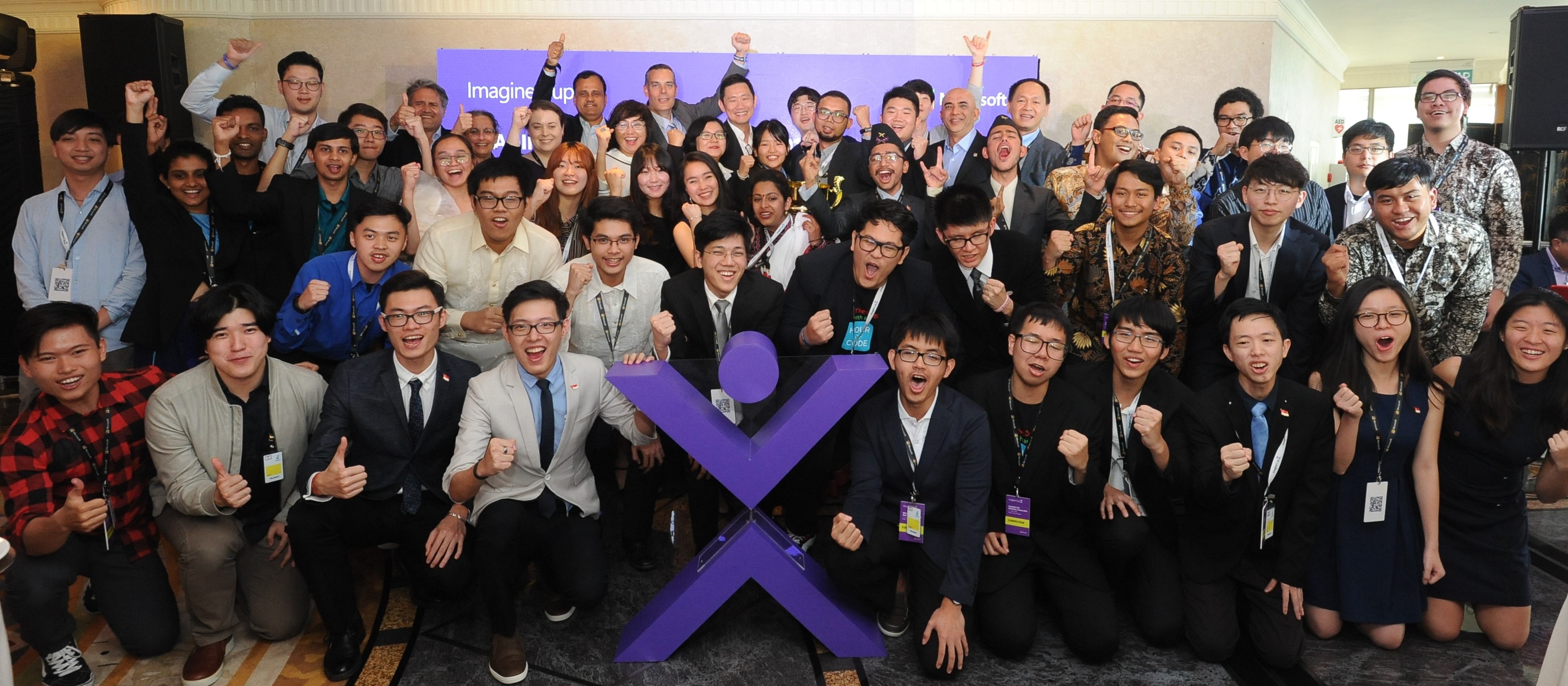
“Remember to look up at the stars and not down at your feet. Try to make sense of what you see and wonder about what makes the universe exist. Be curious. And however difficult life may seem, there is always something you can do and succeed at. It matters that you don’t just give up.”
— Stephen Hawking, Theoretical Physicist
The Microsoft Imagine Cup 2018 APAC Regional Finals will be held in Kuala Lumpur, Malaysia, on 4 April 2018. Microsoft is partnering with GIST, MDEC and SiriVenture, to stage the second-ever Asia Pacific Finals. Fifteen student teams from nine countries will compete for seven spots at the World Finals that will be held in Redmond, Washington, in this July.
We are living in a modern society of advanced technology, where artificial intelligence, the internet of things and cloud computing are inescapable buzzwords. At Microsoft, we are mindful that technology has the power to enable many things; making the world a better place is one of them. It is our responsibility to continue pushing the boundaries of technology and innovation to solve the problems of tomorrow.
For the past 16 years, the Imagine Cup has been the world’s premier student technology competition. It is a global contest for computer science students to team up and use their collective creativity, passion and knowledge of technology to create applications that could one day shape how we live, work and play.
Since 2003, students have brought big, bold and bright ideas to life with the help of mentors and industry leaders. Many participants have gone on to create impact the world over.
Microsoft believes in empowering the next generation with the tools and skillsets to build these solutions. Every year, Imagine Cup inspires young developers and aspiring entrepreneurs to innovate. During the last 16 years, Imagine Cup has reached out to more than 2 million students across 190 countries – including nearly 380,000 students across Asia Pacific – over the last five years.
This year’s 15 APAC student teams will be hoping to turn dreams into reality in Kuala Lumpur. Read on to learn more about the transformative ideas conceived and made into reality by these young individuals, as they attempt to shape our future for the better.
Improving agricultural productivity
Agriculture is the rearing of animals and plants to serve the most basic needs for humans to survive. It is also a major source of livelihood for most developing countries. The following teams have deep interest into the various agricultural challenges farmers are facing today, and have conceptualized sustainable solutions through the use of modern and innovative technology.
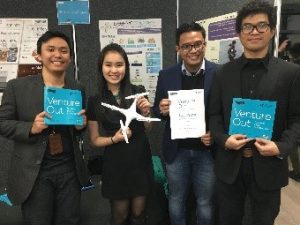
Team Beehive Drone, Indonesia
Around the world, especially in Southeast Asia, forests and other natural habitats have been converted for agricultural use due to rising demand for food. Indonesia’s Team Beehive Drone aims to solve this problem by revolutionizing farming with agricultural drones. The major benefits of drones include real-time crop monitoring, capturing accurate aerial views, as well as a distribution mechanism for pesticide, fertilizer, and water.
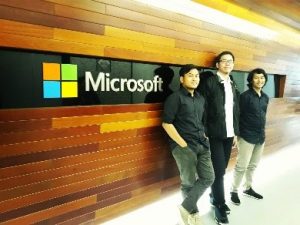
Team Taleus, Indonesia
According to the Food and Agriculture Organization (FAO), there is an urgent need to produce 70% more food by 2050 for an additional 2.3 billion people globally. However, FAO also estimates that between 20-40% of global crop yields are reduced each year because of plant pests and diseases. Team Taleus has developed Dr. Tania, a chatbot that offers quick plant disease diagnosis alongside recommended treatments with just a few simple clicks.
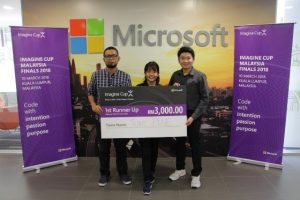
Team PINE, Malaysia
Do you know that pineapples are ranked third-most important, and second-most exported tropical fruit in Malaysia? Before shipping, exporters have to determine the quality of pineapples by using a refractometer, which also means that some pieces of fruit are subjected to destructive analysis, leading to wastage. To solve this, Team PINE has developed a sensing device so farmers can evaluate optimal levels of ripeness in a non-intrusive manner, before harvesting.
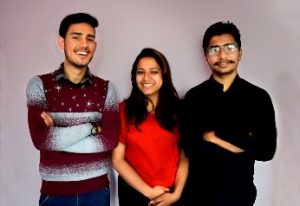
Team SochWare, Nepal
Excessive use of chemicals not only destroys crops, but also negatively impacts our ecosystem. Team SochWare has designed a solution to help farmers identify plant diseases and suggests mitigation strategies. Additionally, the team’s solution also enables farmers to speak to agricultural experts, or to alert nearby growers about issues.
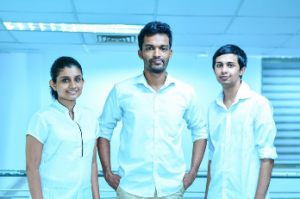
Team AlgoR, Sri Lanka
Overproduction is a key issue in agriculture. Farmers too often endure inconsistent returns because of supply and demand imbalances. Team AlgoR has developed a solution which leverages predictive analytics to help farmers determine the most valuable cash crop within a given period of time.
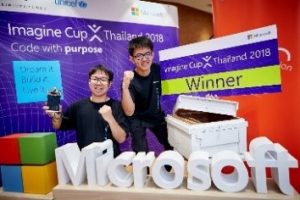
Team BeeConnex, Thailand
Many of the world’s crops are pollinated by insects, with bees among the most important. Quality beekeeping practices are crucial to ensure that beehives are kept in good and sturdy condition. Team BeeConnex from Thailand has come up with a IoT device that tracks and monitors the health of a beehive. It also alerts beekeepers when potential anomalies are detected.
Enhancing Health Service Delivery
With advancements in medical technology, doctors can better diagnose illnesses and treat patients. But more needs to be done. Our student teams are relentlessly looking for ways to further transform the future of healthcare – not only to save lives, but also to improve the quality of life of potentially millions.
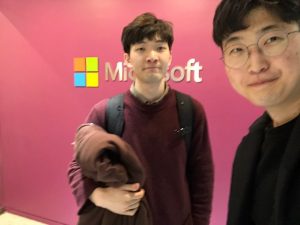
Team En#22.45km, Korea
Rising numbers of emergency calls represent a major problem in many countries. For instance, an estimated 240 million calls are made to 911 in the United States each year. Every call is answered by an operator who is required to provide accurate instructions over the phone, while typing in information into an emergency response system. Team En#22.45km from Korea hopes to improve this process with its solution, E-CALL Assistant. It offers real-time voice translation and content analysis, enabling operators to assess and respond to callers effectively.
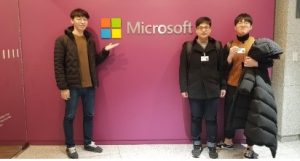
Team Tomorrance, Korea
Obesity is a major global health concern. Korea’s Team Tomorrance has taken up the challenge of finding the right nutrition and workout blueprints for different body types. The students have developed a 3D scanner and a mobile app that creates personalized fitness plans based on body composition analysis. The NUNBODY Scanner uses Intel RealSense 3D camera technology for precise body scans. And the NUNBODY App helps to interpret the results of analysis results and recommend an appropriate exercise regimen.
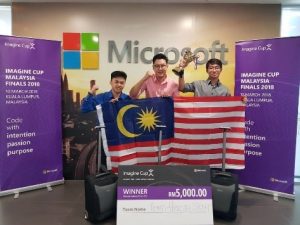
Team HealthSight, Malaysia
Hospitals worldwide are grappling with nursing staff shortages and high turnover rates. To help compensate, Team HealthSight has come up with an Intelligent Surveillance System that aims to detect and prevent patient falls with a closed-circuit television (CCTV) setup. When a fall is detected, the system alerts the smartphones of on-duty nurses. HealthSight has been tested at the Sultan Ismail Hospital in Johor, as well as the Tong Shim Old Folks Home in Kuala Lumpur, to positive feedback.
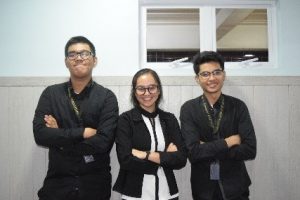
Team Onyx, the Philippines
Ignorance is not bliss when it comes to health. According to the Philippines Statistics Authority, annual death rates have been increasing due to the lack of awareness around chronic health issues. Team Onyx from the Philippines believes that early detection can help save lives. The students designed a mobile app to boost health knowledge and highlight crucial health.
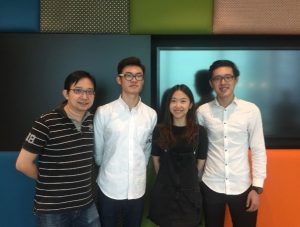
Team 7x, Singapore
Dyslexia is said to be the most common form of learning difficulty, affecting about 700 million people around the world. Singapore’s Team 7x created ProCubeX, an interactive and smart learning cube designed as an early intervention tool for children with dyslexia. The cube will generate an individualized education plan that triggers multisensory stimulation as well as parts of the brain responsible for language learning.
Optimizing Operational Effectiveness
Business leaders in Asia Pacific are starting to embrace the 4th Industrial Revolution and are acknowledging that every organization needs to transform into a digital business to enable future growth. These teams have designed cutting-edge tools tho overcome limitations faced by companies in different industries.
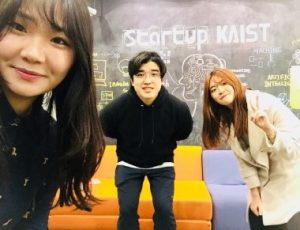
Team Classum, Korea
Some students might be too nervous or intimidated to ask questions in class. So, this team has developed an app, CLASSUM, so shy students can pose questions to their educators or peers without raising their hands. The app works the same way as a mobile messaging app and provides a comfortable educational experience in which teachers and students can engage in dialogue.
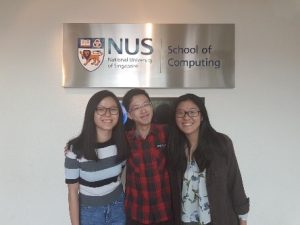
Team Ruumi, Singapore
Incorporating Hyperledger Fabric blockchain and Machine Learning technology, Ruumi operates as an online marketplace for users to lease spaces in a secured and simple way. The app also has a chatbot feature for owners to answer questions, and an analytics dashboard to view usage metrics.
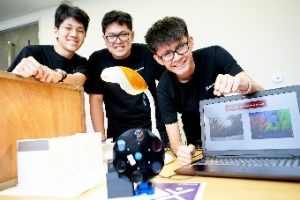
Team inSpectra, Thailand
Ensuring security and safety is crucial in any factory. When working in confined spaces, it is important to have a device that can effectively detect hazardous gas leaks. However, this can be a problem in developing countries where internationally approved gas detectors are regarded as too expensive. Team inSpectra’s project adopts a multispectral imaging system as well as image fusion technique, to expose invisible substances and prevent industrial disasters.
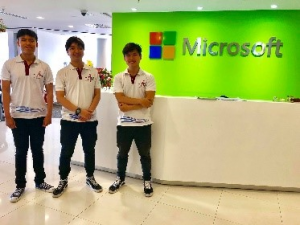
Team BeeTech, Vietnam
Despite technology being far more advanced today, our vehicles still do not have the ability to speak to us about their problems. Team BeeTech from Vietnam created a Smart Car Box that can help car owners pre-empt any possible complications before they occur.




